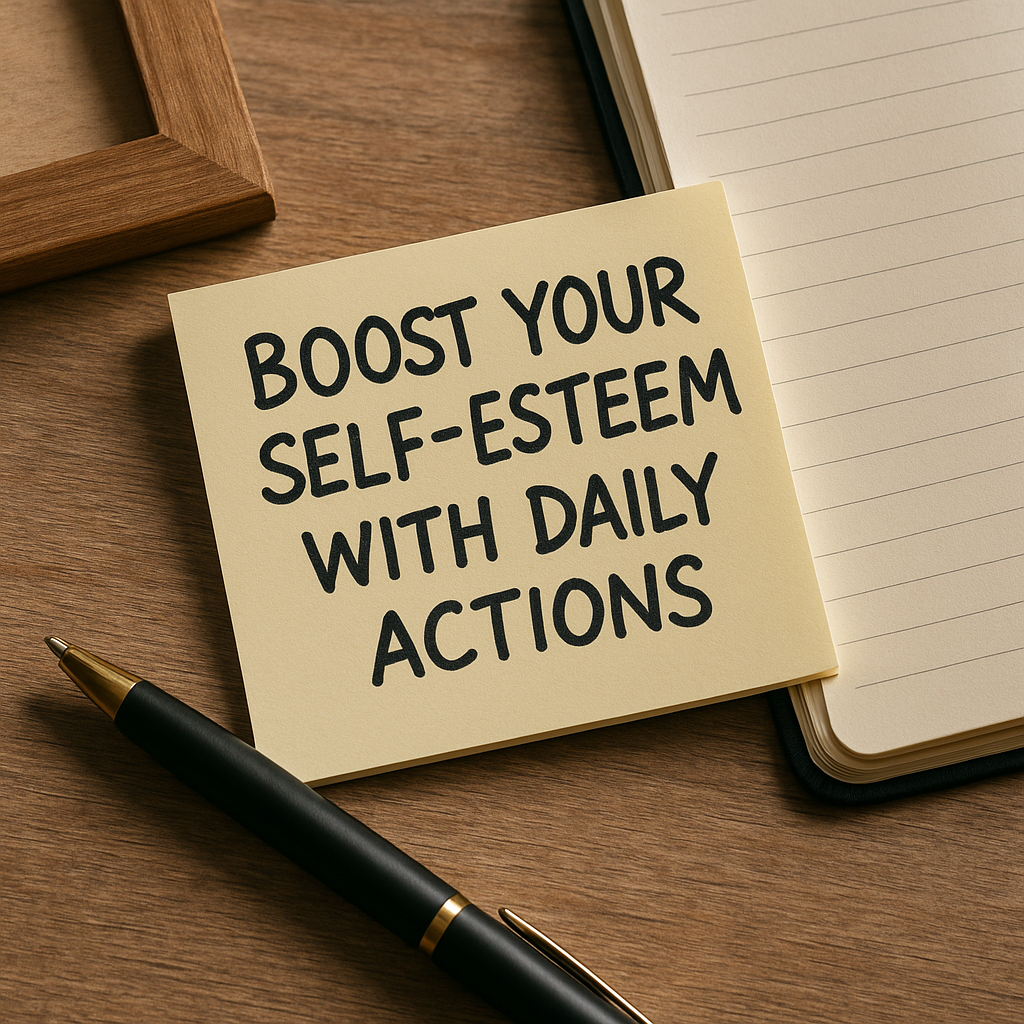Self-esteem is how you see and value yourself. It affects your confidence, your decisions, your relationships, and even your mental health. If you have low self-esteem, the good news is that it’s not permanent. With daily effort and intentional habits, you can rebuild a stronger, more positive relationship with yourself.
In this article, we’ll walk through practical steps you can take every day to boost your self-esteem—no fluff, just real actions that work.
What Is Self-Esteem, Really?
Self-esteem is not arrogance or ego. It’s the inner belief that you are worthy, capable, and enough.
Signs of healthy self-esteem:
- You feel confident in your decisions
- You accept compliments without discomfort
- You don’t fear rejection or failure as much
- You speak kindly to yourself
- You set boundaries without guilt
If this doesn’t sound like you—don’t worry. That’s why you’re here.
1. Speak to Yourself Like You Would to a Friend
Most people talk to themselves in ways they’d never speak to someone they love.
Start changing that habit today:
- Notice your inner dialogue
- Ask: “Would I say this to someone I care about?”
- Replace harsh words with supportive ones
Examples:
- Instead of: “I’m so lazy.”
Try: “Today was hard, but I’m trying.” - Instead of: “I’ll never be good at this.”
Try: “I’m learning, and I’ll improve with time.”
Kind self-talk builds a solid internal foundation.
2. Celebrate Small Wins
Self-esteem grows when you acknowledge your efforts, not just your outcomes.
Keep a daily log of things you did well, like:
- Finished a task you were avoiding
- Got out of bed even when you felt down
- Spoke up in a meeting
- Cooked a healthy meal
Each win tells your brain: “I am capable.” Over time, these small validations create big changes in how you view yourself.
3. Do One Thing That Scares You (Just a Little)
Confidence grows through action—especially when you face fear and discomfort.
You don’t need to make a huge leap. Try:
- Saying no when you mean it
- Sharing your opinion in a group
- Applying for a new opportunity
- Wearing something bold
- Trying a new skill, even if you’re not good at it yet
The more you stretch your comfort zone, the more confident you become.
4. Write Down Compliments (and Revisit Them)
When someone gives you a genuine compliment—write it down.
Create a “self-esteem file” on your phone or notebook. Include:
- Compliments you’ve received
- Achievements you’re proud of
- Moments you felt strong, kind, or brave
Revisit this list whenever self-doubt creeps in. It’s a reminder of who you really are, not just what you’re feeling in a low moment.
5. Take Care of Your Body (and Your Mind Will Follow)
Self-esteem is deeply connected to how you treat yourself physically. You don’t need to follow extreme routines—just show your body respect.
Start with:
- Drinking more water
- Moving your body in ways you enjoy
- Getting enough sleep
- Eating nourishing foods
- Resting without guilt
Your body is your home—treating it well teaches your mind that you matter.
6. Set (and Keep) Promises to Yourself
Every time you keep a promise to yourself, you build trust in your own word.
Start small:
- “I’ll take a 10-minute walk after lunch.”
- “I’ll journal before bed.”
- “I’ll avoid checking my phone first thing tomorrow.”
Don’t make promises you won’t keep. Choose one, follow through, and watch your self-trust grow.
7. Practice Boundaries Without Apology
Low self-esteem often leads people to say “yes” when they mean “no,” or stay silent when they need to speak up.
Healthy boundaries protect your energy, your time, and your peace.
To practice:
- Start by saying, “Let me think about it,” instead of instantly agreeing
- Use simple, respectful language like, “I’m not available for that,” or “That doesn’t work for me right now.”
- Remind yourself: Saying no doesn’t make you mean—it makes you honest
Each boundary you set affirms your value.
8. Limit Comparison Traps
Comparing your life to others—especially on social media—is one of the fastest ways to damage self-esteem.
Try this:
- Limit time on platforms that trigger envy or insecurity
- Mute or unfollow accounts that make you feel “less than”
- Focus on your progress instead of perfection
- Remind yourself: You’re seeing someone else’s highlight reel, not their full story
Comparison kills joy. Stay focused on your own path.
9. Surround Yourself with Supportive People
Who you spend time with affects how you feel about yourself.
People who lift you up will:
- Celebrate your wins
- Support your growth
- Remind you of your strengths
- Challenge you with kindness, not cruelty
If someone constantly makes you feel small, it’s okay to reconsider that relationship. You deserve connection that empowers.
10. Give Yourself Credit—You’re Doing Better Than You Think
Take a moment right now to appreciate yourself:
- You’re showing up
- You’re trying
- You’re reading this because you care
That’s not nothing. That’s everything.
You Deserve to Feel Good About Who You Are
Boosting your self-esteem isn’t about pretending you’re perfect—it’s about recognizing that you are worthy as you are, and still capable of growing.
Start small. Choose one habit from this article and apply it today. With time, those daily actions will become a powerful, lasting transformation.
You don’t need to be someone else to be proud—you just need to be more of yourself.
